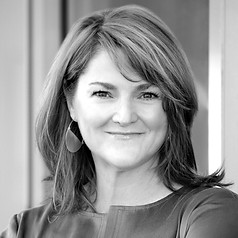We were all together in the conference room, waiting to meet our new boss. We were prepared with our introductions and highlights of our respective departments. We wanted her to know we were glad she was there and ready to do our part to help her succeed in her new role. We imagined out loud what our future might look like under her leadership. The future looked bright. We couldn’t wait to meet her. Expectations were high.
She entered the room, sat down with a quick “Hello,” and proceeded to tell us about her background, her vision, and her priorities for her first 30 days. She fielded a few questions, said, “See ya next week,” and left without asking our names.
We were deflated, to say the least. That’s not what was supposed to happen! Our reaction, (among ourselves) was not subtle. Collectively, we had formulated an expectation of what this meeting would accomplish and the parts we’d play, and we took action with that end in mind. We had emotional attachments to our vision for the meeting. It seemed so obvious to us. But we had neglected one simple but important fact: she had expectations, too.
THINK
How can expectations for seemingly obvious things differ so greatly from one person to the next? The disconnect happens every day, in small ways and sometimes in huge ways. So, where do these expectations come from? Why do we expect what we expect?
Expectations for everything we experience are informed by the data our brains collect through each of our own unique experiences throughout our lives. We learn by how we internalize what we observe. And it’s happening all the time. What keeps us safe? What is rewarded? What is punished? What got us the result we were looking for? What didn’t? These experiences inform the predictions we make about what we think should happen. Our brains are pattern matching: if x, then y. The collection of predictions that emerges from our experiences formulates our expectations. And we all have them, whether we are conscious of them or not.
Some of our expectations are more firmly rooted than others. This can be attributed to
a) the volume of evidence we gather over time to support an existing expectation,
b) the intensity of the signals (positive or negative) we receive through our experiences,
c) the level of trust we have in the data source of the signal itself,
d) the attachment we have to a certain outcome, or likely,
e) a combination of all of the above.
We’re not always conscious of what our expectations are. In fact, we’re often not, but we sure don’t like it when they’re not being met. The more firmly rooted the expectation, the stronger our reaction when reality falls short.
Let’s take the team meeting example. Throughout the meeting, we each experienced a sinking feeling in our stomachs as it became increasingly clear our expectations were not going to materialize. Not even close! And it felt awful! This is the moment to pay attention to. This is the moment we experienced Confusion. Confusion is when our reality fails to meet our (conscious or unconscious) expectations. An intentional exploration of our expectations is required to understand our reactions to Confusion. This exploration is needed to move us to Clarity.
Our expectations often go unchecked. They seem so obvious that it doesn’t occur to us that someone else would have different expectations. This thinking creates Confusion and causes us to miss each other over and over again. That was certainly true for our team meeting. We didn’t pause to think, or better yet, to ASK what our new leader’s expectations were for our introductory meeting.
A powerful way to learn about ourselves is to get deeply curious and heighten our awareness of our own expectations relative to our context. We have expectations for everything, some big, some small. Some matter a lot to us, and some don’t. Some are explicit, and many are still under the surface and unknown to us. We have expectations around relationships, work, social constructs, money, leadership, family, and ourselves. The list is endless!
Our expectations inform our actions. To learn and evolve toward our potential both individually and collectively, we need to examine our expectations and the corresponding action we’re taking. We need to direct our attention to the ongoing data collection that is occurring with each new experience so that we can update our expectations consciously and purposefully across contexts. Knowing this, we can be more mindful as to what influences our expectations. We can be deliberately curious and open to others whose experiences—and, hence, expectations—are different than our own.
REFLECT
Reflect on examples of being disappointed by someone at work, for any reason, big or small, when what you experienced did not make sense to you.
What were your expectations that were not met?
Do you know what you expected?
How was it different from what actually happened?
TRY
- Before your next 3 meetings (no matter what your role in the meeting is), write down your expectations for what the meeting will specifically accomplish, the process to get there, and how people should behave within this process.
Pay attention to what actually happens in the meeting against your expectations.
After the meetings, pause and reflect. How close was reality to your expectations?
What opportunities do you see to check in to understand the expectations of others?



